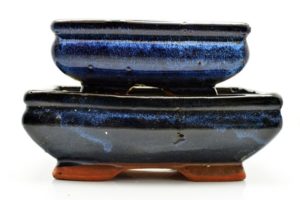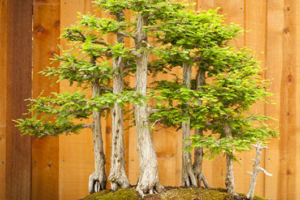“Top 5 Easiest Bonsai Trees to Master” Perfect for Beginners!
Mega Japanese White Pine !
Pinus Bonsai species
Pinus bonsai, also known as Pine bonsai, is a popular and versatile species of bonsai tree that is widely cultivated and highly prized by bonsai enthusiasts around the world. The Pinus species is a large and diverse group of trees, with many different varieties, each with its own unique characteristics and growth habits.
Growing Pinus Bonsai Trees
Pinus bonsai trees are hardy and adaptable and can be grown in a variety of conditions. They prefer a sunny location and well-draining soil and can be grown in both indoor and outdoor environments. Pinus bonsai trees are slow-growing species and can take many years to reach maturity.

Pruning and Wiring
Pruning and wiring are important aspects of bonsai care that are used to shape and train the tree. Pinus bonsai trees can be pruned regularly to encourage new growth and maintain their desired shape. Pruning should be done during the growing season, and care should be taken to avoid over-pruning, which can damage the tree.
Wiring is another important aspect of bonsai care that can be used to shape and train the tree. Pinus bonsai trees can be wired during the growing season to encourage new growth and maintain their desired shape. It is important to check the wiring regularly and to remove it once the tree has grown into its desired shape.
Fertilizing and Watering
Pinus bonsai trees are heavy feeders and require regular fertilization to maintain their health and vitality. A balanced, all-purpose fertilizer should be applied every 4-6 weeks during the growing season, and reduced to monthly applications during the winter months.
Watering is another important aspect of bonsai care, and Pinus bonsai trees should be watered regularly to maintain their health and vitality. They prefer evenly moist soil, but should not be overwatered, as this can lead to root rot. During the summer months, it is important to water the tree regularly to prevent it from becoming dry and stressed.
Protecting from Pests and Diseases
Pinus bonsai trees are susceptible to pests and diseases, and it is important to monitor the tree regularly for signs of infestation. Regular applications of insecticides and fungicides can help to prevent pest and disease problems.
Final Thoughts
Pinus bonsai trees are beautiful and versatile species of bonsai tree that are well-suited to a wide range of growing conditions. With proper care and attention, Pinus bonsai trees can thrive and bring beauty and elegance to any bonsai collection. When growing Pinus bonsai trees, it is important to provide the right growing conditions, to prune and wire the tree regularly, to fertilize regularly, and to protect the tree from pests and diseases. With the right care and attention, Pinus bonsai trees can be a source of pride and joy for years to come.







Leave a Reply
Your email is safe with us.
You must be logged in to post a comment.